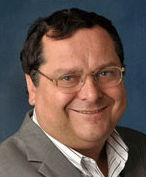

Being acquired was the first of its kind move in history of Dystar - an acquisition dab hand. Isn’t it? Can you help us understand how it will benefit both companies –Kiri Dyes and Dystar?
Actually, this is not the first time that DyStar has come under new ownership. In any case, the focus should be on the benefits that the acquisition provides – be it in terms of market share, supply chain knowledge, expertise, technology know-how, best practices, etc. – it is a win-win situation for all. And that most importantly includes our customers.
So, where shall we see the change in the company now?
It is pretty much business as usual at the day-to-day operational level. DyStar continues to operate as an independent company in its markets and within the industry because, at the end of the day, DyStar, Kiri and Longsheng maintain different and separate entities.
Around end of last year yet another first of its kind contract in industry was signed between DyStar and end-user Alok industries. Can you also throw some light on the rationale underlying?
We wish to provide opportunities for enhanced quality through practical training to our industry partners, and a co-operation with a leading textile producer seemed a logical and useful progression of this idea.
What are your impressions about textile dyes and chemicals industry around the globe today?
We continue to see a trend towards more environmental awareness in the industry.
For example, we see an increase in demand for our various econfidence® by DyStar programs – conferences (on topics such as ecology, environment, sustainability); training; process improvements; certification program (the econfidence® hangtag programs); programs that aim to help members of the textile industry make products that meet the strictest environmental standards worldwide.
This is an indication that members of the industry want to play a positive role, and DyStar is committed to lead in facilitating this trend.
DyStar is committed to the highest standards of quality and service and our customers recognize the added value of working in partnership with DyStar. We will continue to offer good value for our customers.
It is apparent that India is been seen as potential market by industry today. Beside India, which areas geographically are likely to emerge for your industry?
Well, DyStar is a global company. We are present in all major textile processing countries. But, as a leader in our field, DyStar also aims to be closer to the brands, retailers, and other key players in the textile and clothing supply chain , wherever they are in the world in order to provide product integrity.
Will dyes and textile chemical industry follow some product traits?
We continue to see a trend towards more environmental awareness in the industry.
DyStar is committed towards being a responsible part of this trend, by reducing our footprints and more. We research and invest in new products and processes to make our products meet the strictest ecological and environmental standards worldwide. And, we are helping members of the textile industry achieve the same.
‘Reducing Foot Print’ – can you explain little further, how does the company walk the talk?
DyStar has always operated to the highest safety and environmental standards.
Externally, we are committed supporters of ecological & environmental programs and members of associations and non-governmental organizations such as ETAD, Responsible Care, AFIRM, Organic Exchange, Bluesign, GOTS, etc. Internally, our Ecology Solutions team is dedicated to look specifically into the ecological and environmental impact of our products.
We are proud of our continuous efforts in this area and have turned that commitment into a world-wide registered trademark known as econfidence® from DyStar which is backed by the most extensive testing program in the industry.
We could have stopped there but we didn’t. In recent years, for example, we have expanded our econfidence® commitment, introducing it to external members of the textile supply chain. Through the introduction of our econfidence® by DyStar hangtag programs, for example, we are sharing our econfidence® knowledge and practices, helping our customers make their products in accordance with the strictest ecological and environmental standards worldwide.
Our commitment to reducing our own environmental impact is serious and firm as we continue our investments in R&D and in developing new products and processes to push ourselves forward, with the focus to help achieve sustainability in the textile supply chain.
Our series of publications on the sustainability in the textile supply chain can be found on our website at the following link: www.dystar.com/highlights/sustainability.cfm
######DISCLAIMER: All views and opinions expressed in this column are solely of the interviewee, and they do not reflect in any way the opinion of Fibre2Fashion.com.